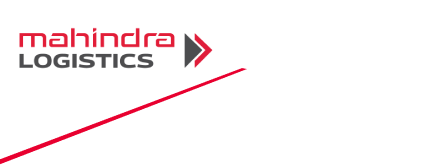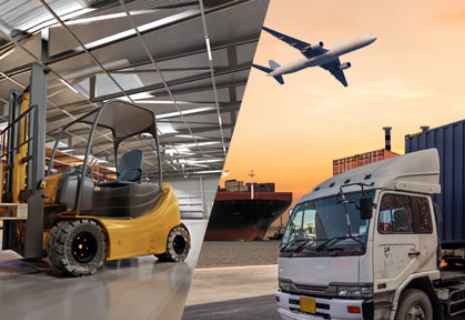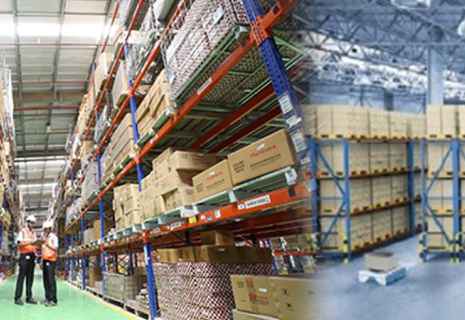
Breaking Down Ocean Freight Incoterms: What Businesses Need to Know
In terms of global trade, ocean freight is still one of the most popular and cost-effective ways to ship bulk goods around the world. But it is not only about securing space on a ship. Businesses must have a clear idea of the duties and costs associated with shipping goods. This is where Incoterms come into the picture.
These are standard international trading terms. They specify who is responsible for each part of the journey. From customs clearance to the final point of delivery, they define how companies will function within freight forwarding logistics frameworks. Getting them right can result in fewer delays, better planning, and improved cross border logistics in general.
What Are Incoterms and Why Do They Matter?
Incoterms simply stand for International Commercial Terms. When it comes to global transactions, these rules provide clarity to both the buyers and sellers regarding what their responsibilities are. They spell out who’s going to handle the different aspects of shipping, insurance, duties, unloading, delivery, etc.
Here are the popular Incoterms used in sea freight:
- FOB: The seller needs to take the goods to the port and put them on the ship. From there, the buyer takes up responsibility.
- CIF: The seller makes any payment needed for transportation and insurance.
- DAP: Seller takes the responsibility and delivers the carriage to the named place, but does not look after import clearing.
- DDP: The seller handles everything, be it import clearance or duties.
It is important to choose the correct Incoterms, especially for companies that are new to international trade and need to manage costs and control. And that’s where an expert ocean freight shipping company like Mahindra Logistics comes in – not only to guide you through the terminology of Incoterms, but to accompany you throughout your supply chain experience with fully inclusive and trustworthy logistics services.
Choosing the Right Term for Your Business Model
Each Incoterm comes with its own set of responsibilities and risks. For example, DDP terms could be chosen by import-intensive companies that want to make their operations more streamlined. Exporters, meanwhile, may want to use FOB or CIF to minimize liability once goods are on the water.
The most important thing is to choose terms that suit both your logistical capabilities and financial plans. Many shipping partners offer guidance on which terms you should choose according to your industry, type of cargo and destination. Consider Mahindra Logistics, for instance. Their team collaborates with customers to ensure that Incoterms are in line with wider operational objectives.
How Incoterms Influence Shipping and Handling
Incoterms do more than allocate responsibility — they structure the entire shipping process. Under DDP, for instance, the seller has to have strong local partners and an understanding of customs in the destination country. Insurance and freight must be properly arranged upfront under CIF.
That’s why it’s critical to understand the impact on documentation, lead times, and local compliance regulations for each Incoterm. This is a complexity that can be handled by a competent freight forwarding logistics provider.
Ocean freight shipping companies like Mahindra Logistics offer services that include Full Container Load (FCL), Less Container Load (LCL), Break Bulk, and Over Dimensional Cargo (ODC) handling. These services are critical for executing diverse Incoterm scenarios smoothly, particularly when dealing with varying cargo volumes and port conditions.
Getting it Right with the Right Partner
Understanding and applying Incoterms is not something of a one-time exercise. Businesses change and so do their requirements, as they grow or enter new markets. A logistics partner who can draw upon regional knowledge, technology enhanced systems and scalable services may be the difference between how agile and opportunistic a supply chain can be.
In most cases, companies such as Mahindra Logistics support this path by providing customized solutions that cater to the client’s trade lane, type of cargo and long-term vision. Their stakes in key sourcing markets such as China and their management of over 20 000 TEUs every year, make them capable of handling complex and high volume cross border logistics operations.
Final Thoughts
In sea freight, Incoterms are very much in use and have a significant role to play in clarifying who is doing what. But they are not in a vacuum. Their effectiveness is contingent upon the extent to which they are backed by reliable logistics operations, strategic partners and local knowledge.
When businesses have a good grasp of what Incoterms are and engage experienced, versatile freight forwarding logistics providers, they can find a clearer and more efficient path through international trade.
FAQs
1. Which Incoterm is best for new exporters?
FOB (Free on Board) is commonly preferred by new exporters as it limits their responsibility after the goods are loaded onto the vessel, reducing risk and complexity.
2. How do Incoterms affect shipping costs?
Incoterms have a significant impact on a company’s freight costs. Incoterms specify which party assumes responsibility for each cost associated with shipping. Picking the right Incoterms allows firms to control expenses and lessen the risk of extra expenses or fees.
3. What is the meaning of Incoterms in sea freight?
Incoterms are the standard international trade terms that decide the transfer of responsibility and liability between buyer and seller in ocean freight.
Incoterms are globally accepted guidelines that govern the obligations and liabilities of the parties in shipping over the ocean.
4. Can a logistics partner help choose the right Incoterms?
Logistics providers are able to assist companies in selecting the best Incoterms.
Freight forwarding logistics companies with expertise in the industry assist clients by recommending appropriate Incoterms according to different shipment details.
5. How does Mahindra Logistics handle Incoterms?
Mahindra Logistics helps companies use Incoterms in a proper manner in their ocean freight transactions.
Mahindra Logistics helps you unlock the full potential of Incoterms by ensuring that all your ocean shipping needs are covered, from customs clearance to last-mile delivery of your shipment.





